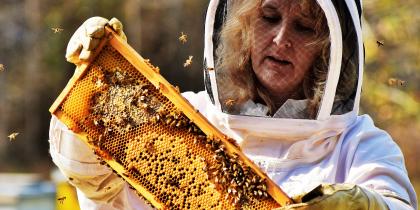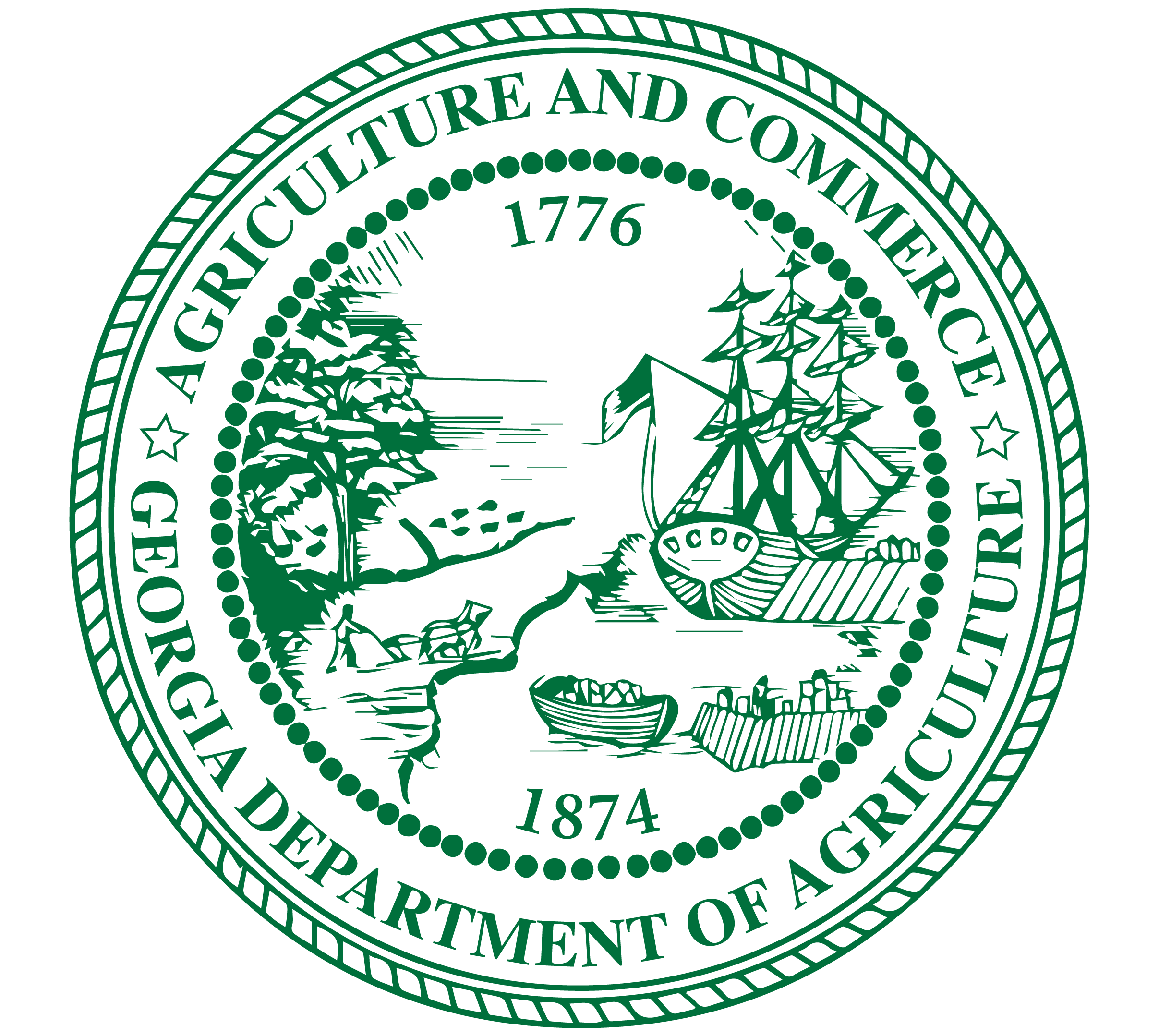
Honeybees
The Apiary Program of the Georgia Department of Agriculture (GDA) supports commercial and hobbyist beekeepers.
-
About Honeybees
Honeybees play a crucial role in agriculture. They pollinate $15 billion worth of crops in the U.S. each year, including more than 130 fruits and vegetables.
Bee populations worldwide are threatened by intensive farming practices, mono-cropping, excessive use of agricultural chemicals and climate change.
Did you know?
-
Nearly one-third of our food depends on insects for pollination.
-
California, Georgia, and Texas are the top 3 states in producing honeybees and queen bees for sale.
-
Bees must visit 2 million flowers to produce 1 pound of honey.
-
An average worker bee only makes about one-twelfth (1/12) of teaspoon of honey in her lifetime.
-
-
Beginning Beekeepers
Historical records indicate keeping honey bees in artificial hives dates back at least 4,000 years. Some people own many hives and make their living through beekeeping, but most beekeepers own only a few hives. It can be an enjoyable hobby and provide delicious honey to share with friends and neighbors.
Things to consider before buying a hive:
- Where will you keep your bees? For many beekeepers, the backyard is fine. However, don't take bees, backyards, zoning, neighbors, and your family for granted. Although state code (O.C.G.A 2-14-41.1) does not allow local governments to ban beekeeping, local zoning boards can adopt ordinances that require minimum square footage or distance from schools and other high-traffic areas.
- Are you able to manage a beehive? Until the 1980s, there were few bee-harming pests in the U.S. Now, varroa mites (Varroa destructor), tracheal mites (Acarapis woodi), small hive beetles (Aethina tumida), and other pests are common. Although beekeeping can be an enjoyable hobby, it takes time and effort to learn about bee pests and diseases.
- Work with a beekeeper for a few days. There are several local bee clubs in Georgia, and many beekeepers are happy to share their experience with someone interested in honeybees. Visit www.gabeekeeping.com to find a club near you.
- Georgia is one of the top 3 states for producing honeybees and queen bees for sale, so you can get local bees if you order early. Anyone selling bees and queens commercially must be licensed by the Georgia Department of Agriculture and the bees are inspected annually for pests and diseases.
- A good source of bees is through your local bee club. A member may have split a hive and is willing to sell the bees (and maybe the hive too). After attending a few meetings, you’ll learn which members are good bee managers who keep their equipment free from diseases.
- Don’t buy a hive and equipment from someone you don’t know. The Georgia Department of Agriculture does not inspect all beekeepers, so pests and diseases could be a problem. If you do purchase equipment and bees from a stranger, ask a more experienced beekeeper to go with you.
License Types
Please e-mail David Williams if you would like more information on a commercial apiary license or moving bees interstate.

